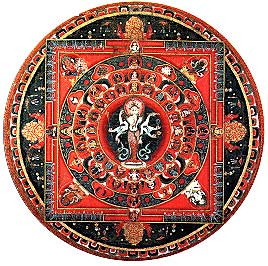Tricycle's Daily Dharma
Rest in Natural Great Peace
When I meditate, I am always inspired by this poem by Nyoshul Khenpo:
Rest in natural great peace
This exhausted mind
Beaten helpless by karma and neurotic thought,
Like the relentless fury of the pounding waves
In the infinite ocean of samsara.
Rest in natural great peace.
Above all, be at ease, be as natural and spacious as possible. Slip quietly out of the noose of your habitual anxious self, release all grasping, and relax into your true nature. Think of your ordinary emotional, thought-ridden self as a block of ice or a slab of butter left out in the sun. If you are feeling hard and cold, let this aggression melt away in the sunlight of your meditation. Let peace work on you and enable you to gather your scattered mind into the mindfulness of Calm Abiding, and awaken in you the awareness and insight of Clear Seeing. And you will find all your negativity disarmed, your aggression dissolved, and your confusion evaporating slowly like mist into the vast and stainless sky of your absolute nature.
–Sogyal Rinpoche, The Tibetan Book of Living and Dying (HarperSanFrancisco)


